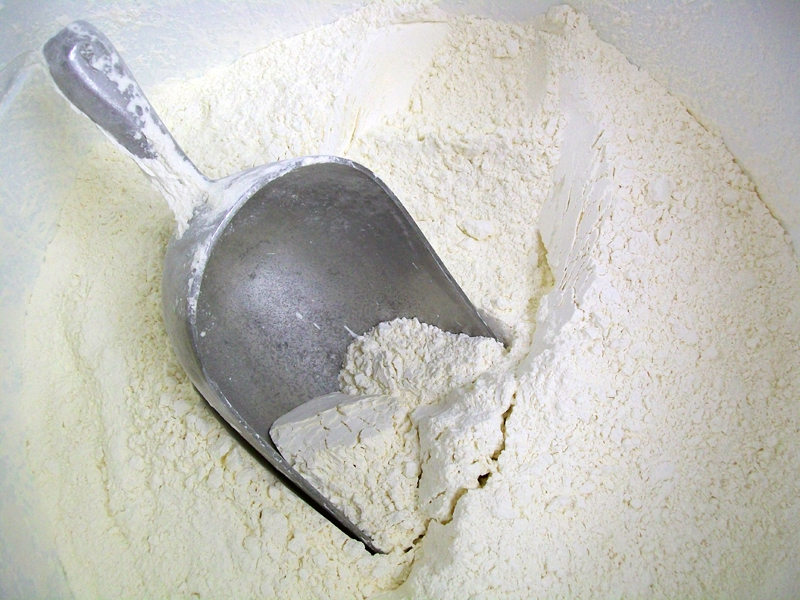Our Quest for Local Flour

Here at BAKE! and next door at Zingerman’s Bakehouse, we work with wheat every day. Flour is one of our most important ingredients. We often talk about how it feels in our hands, how it responds to mixing, the extensibility and elasticity of the dough once the flour has been mixed with the other ingredients, the flavor of the flour, the protein content of the flour, and the price. These are the things we focus our attention on daily. More recently, we have felt an urgent need to ask ourselves a couple questions of place. Where is this flour from? Is there any way we can use more local flour?
The white all purpose flour we use for most of our breads and pastries has been on quite a journey since it was harvested: grown in the plains (Kansas, Nebraska, the Dakotas), it is milled in Minnesota by a company based out of Quincy, Massachusetts. We do not expect this to change overnight, but at the same time the questions that we have asked have led us to a couple of interesting realizations. Firstly, before cheap gas and interstate trucking and the railroad system, most flour used in America was sourced fairly locally. There were ways that enabled the farmer to get his wheat to the miller, who then milled it and got it to the baker. Those foodways have largely disappeared. With the growth of industrialized food production and processing, local mills have withered and most bakeries are using flour that has traveled thousands of miles. Our second realization is that if we want to re-establish some local foodways and use flour that is both grown and milled locally, we are going to have to rebuild those foodways ourselves.
For some of our pastries we use a Michigan grown and milled soft wheat pastry flour, which is proudly milled for us by Star of the West Milling Company, based out of Frankenmuth, MI. This flour is featured in our brownies and some of our pie crusts.
Additionally, for over a year now, we’ve had the great fortune of using some whole rye flour that is grown here in Michigan and milled for us just an hour’s drive from our bakery. This has made us feel like we’ve got our toe in the door of the local grain economy, and has also added a special element of flavor and local integrity to our rye breads. It has made us very eager to do more.
In the fall of 2011 we got in touch with an agent from MSU’s extension office to see what we could do. Phil Tocco, our contact, said he had been working with a couple farmers on growing hard wheat in Michigan, and had a small sample to work with. He had the wheat ground into flour at West Wind Milling and brought us the flours. We used the samples and made very fragrant, tasty, and beautiful loaves of bread! Excited by our experiment, we asked Phil what our next step might be. That has led us to contract a farmer to grow one acre of hard wheat for us. We have agreed to pay that farmer for growing that single acre of wheat, no matter what the outcome. The risk is real, but is more than offset by the opportunity that we have been given to participate in the process of hopefully building a more local food economy which would feature more and more local farmers choosing to grow wheat because they feel confident that we and other local bakeries will buy it and use it well and that the prices that we will pay are better than they could fetch on the bulk commodities market.
It is a small first step but we are extremely excited to be involved in this process! Nothing would make us happier than to be using more locally grown grains and baking breads and pastries that are more amazing and full-flavored because of the care and attention of the farmers, the millers, and our dedicated staff of talented bakers. We hope this is just the beginning of a path that will eventually impact hundreds of local lives and positively impact all of our customers. We’ll keep you all posted!




Zingerman’s Art for Sale